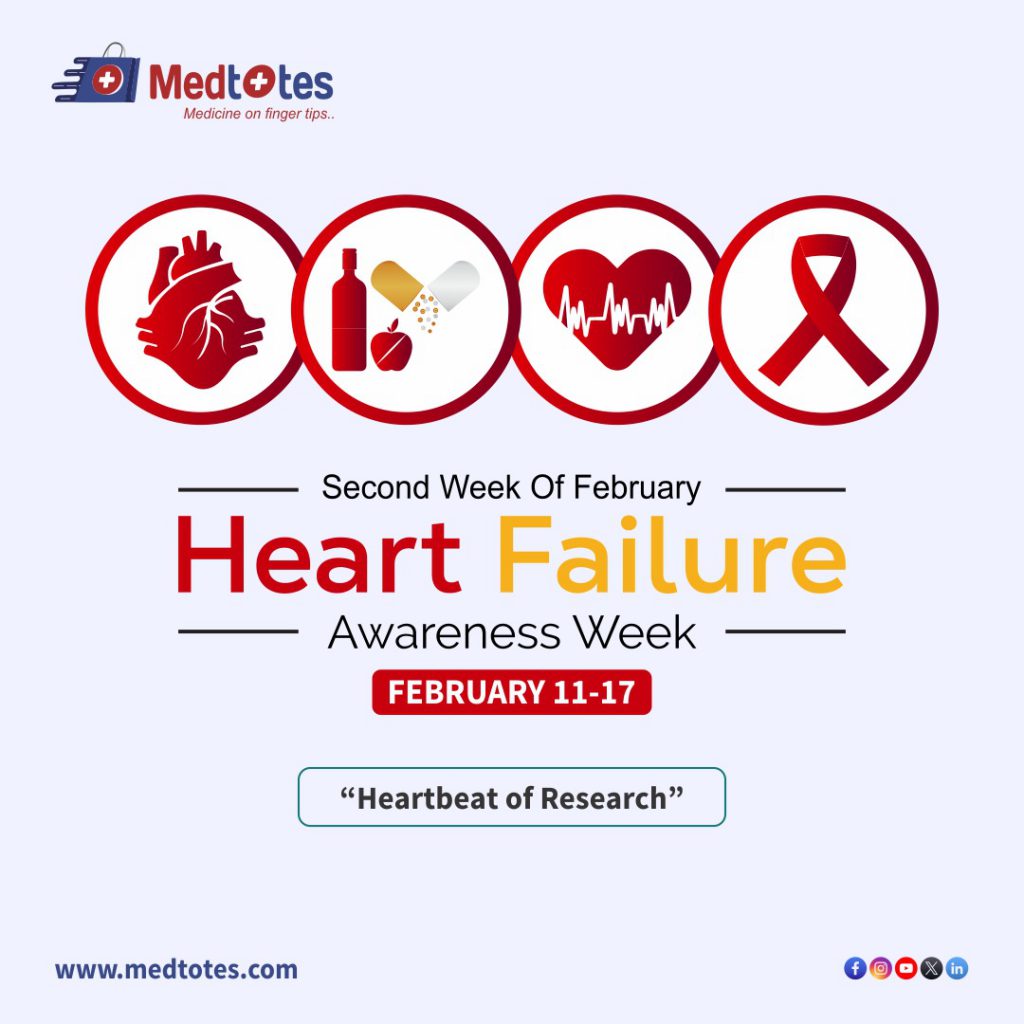I. INTRODUCTION
Heart Failure Awareness Week is an annual event dedicated to raising awareness about heart failure, its causes, symptoms, and treatments. This condition affects millions of people worldwide and significantly impacts their quality of life. Through education and advocacy during this week-long campaign, the goal is to empower individuals to recognize the signs of heart failure, seek timely medical attention, and adopt lifestyle changes to manage the condition effectively.

II. UNDERSTANDING HEART FAILURE
Heart failure is a chronic condition where the heart fails to pump enough blood to meet the body’s needs, often due to underlying health issues like coronary artery disease, high blood pressure, diabetes, and heart valve disorders. Symptoms include shortness of breath, fatigue, swelling, and difficulty performing daily activities. If left untreated, heart failure can lead to serious complications and even death. However, with proper medical care and lifestyle modifications, individuals can live a fulfilling life with treatment options including medications, dietary changes, exercise, and in severe cases, surgical interventions. It’s crucial for individuals to collaborate with their healthcare team to develop a comprehensive treatment plan and monitor their condition.
III. IMPORTANCE OF AWARENESS
Heart failure is a serious health issue often misdiagnosed, leading to delayed treatment and poor outcomes. Heart Failure Awareness Week educates the public, healthcare professionals, and policymakers about early detection, management, and prevention strategies. It encourages proactive steps to manage heart health and reduce complications. Regular check-ups and screenings help healthcare professionals identify heart failure early, develop treatment plans, and improve access. A healthy lifestyle, including a balanced diet, regular exercise, and avoiding smoking and excessive alcohol consumption, can reduce risk and improve overall health, ultimately saving lives and enhancing quality of life for those living with heart failure.
IV. TREATMENT OPTIONS
- Medications: Heart failure can be treated with medications like ACE inhibitors, beta blockers, diuretics, and aldosterone antagonists, which help reduce symptoms, improve heart function, and prevent further heart damage.
- Lifestyle changes: Lifestyle changes like maintaining a healthy diet, exercising regularly, quitting smoking, and limiting alcohol intake can significantly improve heart failure symptoms and overall quality of life.
- Cardiac rehabilitation: Cardiac rehabilitation programs, which involve supervised exercise, education on managing heart failure, and support for lifestyle changes, can be beneficial for individuals with heart failure.
- Implantable devices: In some cases, implantable devices may be recommended to treat heart failure. These devices include pacemakers, implantable cardioverter-defibrillators (ICDs), and cardiac resynchronization therapy (CRT) devices. These devices help to regulate heart rhythm and improve heart function.
- Surgery: Heart failure can be treated with surgeries like CABG or heart valve repair or replacement, which can improve blood flow and alleviate symptoms, depending on the specific situation.
V. CONCLUSION
Heart Failure Awareness Week is a global initiative aimed at promoting healthy lifestyles, regular medical check-ups, supporting research, and empowering patients and caregivers. Its goal is to enhance the quality of life for those affected by heart failure by recognizing, managing, and preventing it.
Download our app: https://bit.ly/3tkQkFy
